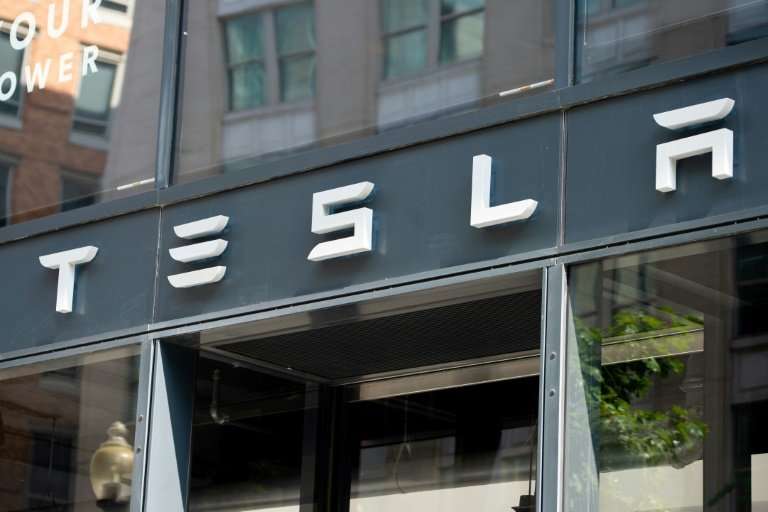Tesla's board said Wednesday it was considering taking the company private.
Exiting US stock markets, a possibility raised Tuesday by Tesla CEO Elon Musk, could ease some of the pressure on the electric automaker but will come at a hefty cost.
Testing the waters
Tesla debuted on Wall Street in 2010, seven years after its launch, with a Nasdaq listing under the ticker symbol "TSLA."
As with other firms wooing markets, this allowed the company to raise capital and develop its technologies.
Musk's pledge to revolutionize the car of tomorrow drove Tesla's market capitalization to $64 billion, making it more valuable than General Motors at $53 billion—a company which produces 10 million cars a year while Tesla puts out barely 100,000. GM also earns billions while Tesla is not profitable.
Why leave Wall Street?
A publicly traded company must meet heightened legal and transparency requirements while publishing quarterly results that are closely scrutinized by investors.
Usually share prices rise on good results while disappointments can send stocks lower.
For Tesla, which expects fat profits in the long term, figuring out how to satisfy markets in any given quarter is a puzzle.
"It forces them into a short-term corporate plan while their goals are long-term," said Gregori Volokhine of Meeshaert Capital Markets.
If the company exits the stock market, executives can think long-term without getting penalized for short-term disappointments.
Another advantage is money.
Tesla is burning through a lot of cash and does not have enough to finance its goals. At the end of June, cash flow was only $2.24 billion. But the company typically runs through between $700 million and $1 billion a quarter.
Sooner or later, Tesla could find itself short of cash. What could it do then?
Analysts say there are two main possibilities: borrow more, which always hurts share prices; or issue more stock, which dilutes the value of shares already held, not to mention shrinking the personal fortune of Musk, who owns a 20 percent stake.
Going private would allow the automaker to avoid publicizing its financing needs.
Is this even feasible?
But first, Musk has to find the cash to pay for the exit. In a series of tweets, he claimed to have secured the backing, but provided no further details.
This will be no mean feat, costing about $70 billion. Banking industry sources say major US financial houses are in no hurry to lend Tesla such a sum, given its current revenues.
Some observers talk of a non-traditional financing. The company could see itself acquired in a leveraged buyout though a specially-created holding company, with much of the purchase price on credit.
Is Musk taking a risk?
The billionaire is betting big because his personal wealth is closely tied to Tesla.
On Tuesday, the company's market capitalization grew by some $8 billion, including $1.43 billion for Musk himself. But questions are emerging.
"Wasn't this whole thing about driving up share prices to let him raise the cash he needs?" Volokhine wondered, noting that other manufacturers were catching up to Tesla's technological advances.
Porsche, Jaguar, BMW and Mercedes-Benz have vowed to roll out 100 percent electric models crammed with high-tech features in the coming months, while GM hopes to market autonomous vehicles beginning next year, a first.
David Whiston of MorningStar said it was also possible Musk wanted to squeeze the short sellers who are betting his share price will fall.
"He has been very vocal against them recently, including posting a satire video on Twitter on Aug 5," Whiston said in a client note.
Short sellers have absorbed $4.4 billion in losses since January due to Tesla's stock surge, according to S3 Partners.
© 2018 AFP
























